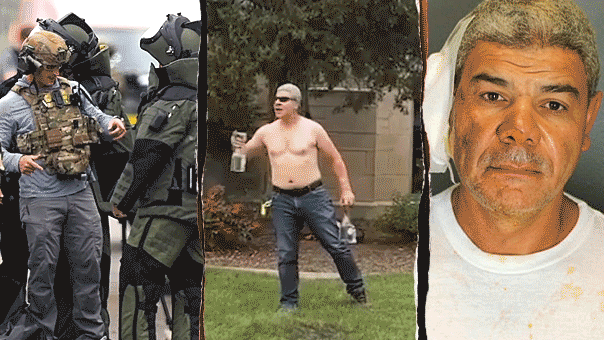Fox News Launches ‘Antisemitism Exposed’ Newsletter Warning of Rising Threats as Deadly Intifada Impact Hits America
Fox News' "Antisemitism Exposed" highlights alarming increases in anti-Jewish sentiment nationwide and globally.

The recent terror attack in Boulder stands as yet another alarming incident in the escalating wave of antisemitic violence sweeping across the United States in 2025. Reports show that not only has the frequency of such hateful acts surged, but the severity has grown more grave, encompassing violent assaults, arson, and even murder. Jewish communities across the country are expressing heightened fear and anxiety, as anti-Israel sentiment continues to spark dangerous rhetoric and criminal behavior from radicalized individuals.
One notable response to these attacks comes from comedian and actor Michael Rapaport, who recently voiced his deep concern over what he perceives as a lack of solidarity from non-Jewish Americans. Rapaport highlighted the urgency for broader societal condemnation of antisemitic violence, urging all communities to stand together against hate crimes. His comments come as new statistics reveal that public acts of antisemitism, including vandalism and direct threats, have more than doubled in major U.S. cities since the beginning of the year.
Amid this environment, incidents large and small continue to gain national attention. In one recent episode, Barstool Sports founder Dave Portnoy was accosted by an antisemitic slur while filming a popular pizza review segment in Toronto. Rather than confront the aggressor, Portnoy shrugged off the hateful comment, later stating that such incidents, unfortunately, have become almost routine. Observers point out that this normalization of hateful language contributes to a climate where more serious violence can take root.
Debate also continues over law enforcement’s response to these attacks. The FBI came under criticism from commentators after quickly labeling the Boulder incident as terrorism, with some questioning whether the agency was acting too hastily. In response, a high-ranking FBI official defended the bureau’s decision, emphasizing the importance of calling out domestic terrorism clearly and unequivocally when it targets religious or ethnic groups. “Swift and accurate classification ensures resources are appropriately allocated and signals seriousness to potential perpetrators,” the official stated.
On the international stage, diplomatic tensions remain high. The U.S. government exercised its veto power at the United Nations Security Council, rejecting a ceasefire resolution in Gaza that was supported by nearly every other member of the council. Officials cited their unwavering support for Israel as the reason for the lone dissenting vote, underscoring how deeply American foreign policy remains intertwined with these domestic security concerns.
Experts warn that this surge in antisemitism is not occurring in a vacuum. Retired FBI counterterrorism professional David Zimmermann has drawn a direct line between the increasingly hostile rhetoric tolerated on college campuses and the disturbing rise in real-world attacks. He maintains that unchecked verbal aggression often emboldens individuals willing to go further, making the threat more pervasive and difficult to combat.
As the Jewish community grapples with the ongoing danger, Zimmermann encapsulated the prevailing mood, stating, "Jews in America fear what will happen next. They continue to ask why they are being targeted simply for being Jews. Is this any way for an American citizen – or a citizen of any country – to live?" For many, these incidents are a stark reminder of the persistent challenges faced by minority communities and underscore the need for collective action to stem the tide of hatred.




